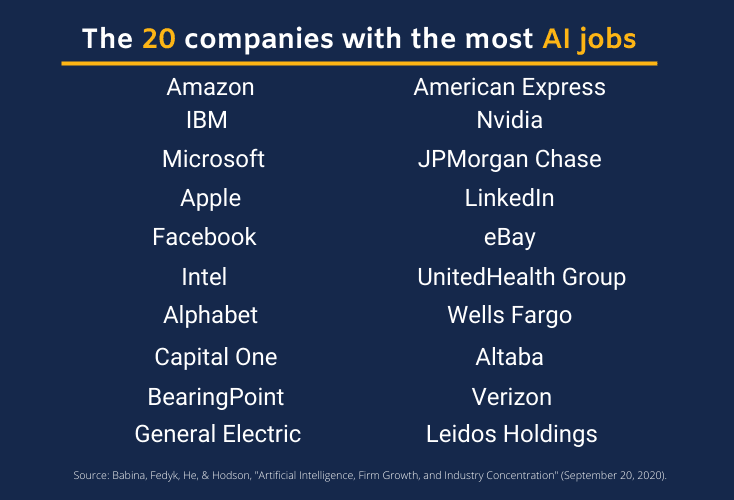 A recent report from Dell into digital transformation highlighted the relative paucity of investment into artificial intelligence, with less than 30% of companies planning to invest in the technology. New research from Berkeley Haas highlights what a mistake that is.
A recent report from Dell into digital transformation highlighted the relative paucity of investment into artificial intelligence, with less than 30% of companies planning to invest in the technology. New research from Berkeley Haas highlights what a mistake that is.
It highlights how companies that invest in AI gain a significant boost in market share, which enables them to invest even more, creating a virtuous circle of growth for firms such as JPMorgan Chase, UnitedHealth, and Amazon.
“AI investments have been concentrated in large firms that were already productive, enabling those firms to grow even larger and capture even more market share,” the researchers say. “By facilitating the rise of the ‘superstar’ firms, the new technology is leading to increases in industry concentration.”
A complex picture
The question in itself is an inherently complex one, as AI is heavily reliant on the kind of large datasets that are often the preserve of the largest firms. These firms are also often better able to personalize products to customers as a result of this data.
It’s also been difficult to quantify the impact AI has on the economy because there is such a paucity of data on how firms are using the technology. The researchers attempted to overcome this by looking at the job postings and resume data of employees at various firms to explore the skills they had, or were looking to acquire. This allowed them to create an index of AI usage.
When analyzing companies, they found that certain “superstar” firms were investing heavily in AI. These firms tend to have not only higher R&D spending, but also larger market shares and bigger cash reserves. The firms below were found to have the most AI jobs.

The researchers found that the firms investing most in AI technology also had the highest growth rates between 2010 and 2018, with a one-standard-deviation increase in the share of AI workers linked to a 16% growth in sales. Also of note is that despite accusations that AI would result in job losses, this also corresponded with a 15% increase in employment.
What’s more, this increase in employment was not just found at the firm level, but across entire industries. So AI-savvy firms were not benefitting at the expense of rivals. The researchers suggest that this is because firms were using AI to become more productive, which helped them to grow.
This expansion was often into new regions or product markets, as firms capitalized on their newfound productivity and efficiency. Obviously this does tend to feed into concerns about excessive market concentration among a few huge firms, but the researchers believe this shouldn’t concern us as it is simply a reflection of market share going to the most productive firms.
The researchers are, however, keen to point out that we’re still relatively early on in the AI journey, so longer-term trends may take longer to emerge.
“It’s still early on as AI hasn’t been around for that long,” they conclude. “It’s possible that it will take longer to see improvements in efficiency.”